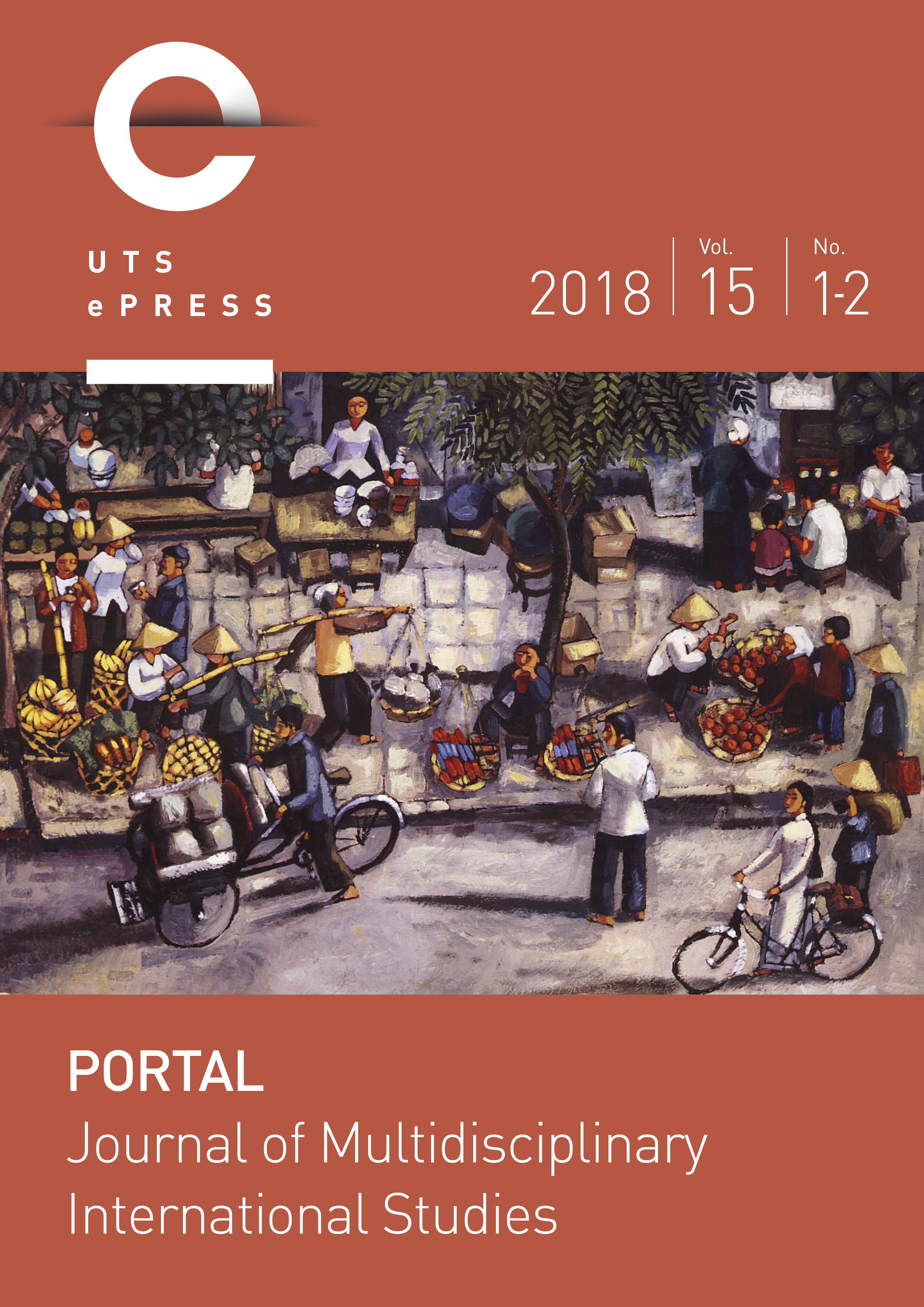'My Husband was also a Refugee': Cross-Cultural Love in the Postwar Narratives of Vietnamese Women
Main Article Content
Abstract
Cet article explore la représentation de l’amour interculturel dans les récits de l’après-guerre des femmes vietnamiennes. La fin de la guerre du Vietnam en 1975 et la réunification du Vietnam sous un régime communiste mena à une des diasporas les plus visibles de la fin du vingtième siècle, pendant laquelle plus de deux millions de Vietnamiens quittèrent leur pays pour se réfugier à l’étranger. Les pays principaux de réinstallation furent les Etats-Unis, l’Australie, le Canada et la France. Les femmes vietnamiennes en Australie qui ont choisi de se marier à l’extérieur de leur culture constituent une minorité non seulement dans la diaspora mais aussi en Australie ainsi que la communité vietnamienne en Australie. Contrairement à la représentation largement négative des relations interculturelles dans les romans et les mémoires du Vietnam colonial et en temps de guerre, les récits de ces femmes surlignent les points communs entre elles et leurs compagnons européens telle une compréhension mutuelle de l’asile politique ou de la guerre. Les récits de ces femmes illustrent des rencontres interculturelles rendues possible par l’expérience d’être réfugié ou migrant, et qui signalent un changement net de position dans la représentation des relations exogames concernant les femmes vietnamiennes. L’histoire orale permet à ces femmes de raconter non seulement le moi mais aussi l’interaction entre le moi et l’autre, et de structurer et d’encadrer leurs expériences de mariage interculturel de manière positive.
Article Details
Issue
Section
For submissions from 31st March 2014 onwards, authors who submit articles to this journal for publication agree to the following terms:
a) Retaining Copyright and Granting Rights:
Authors retain copyright and grant the journal the right of first publication. The work is simultaneously licensed under a Creative Commons Attribution License, allowing others to share and adapt the work. Acknowledgment of the work's authorship and initial publication in this journal is required.
b) Non-Exclusive Distribution:
Authors may enter into separate, additional contractual arrangements for the non-exclusive distribution of the journal's published version of the work (e.g., posting to an institutional repository or publishing in a book). Acknowledgment of its initial publication in this journal is required.
c) Online Posting and Citation Advantage:
Authors are encouraged to post their work online (e.g., in institutional repositories or on their website) prior to and during the submission process. This may lead to productive exchanges and earlier and greater citation of the published work (See The Open Access Citation Advantage Service). If authors include the work in an institutional repository or on their website, they must acknowledge the UTS ePRESS publication with relevant details.
d) Creative Commons Attribution (CC-BY) License Awareness:
Authors should note that the CC-BY License permits readers to share (copy and redistribute) and adapt (remix, transform, build upon) the work for any purpose, including commercial use. Proper credit, a link to the license, and indication of any changes made must be provided. The manner of doing so must not suggest endorsement by you or your publisher.
For Volume 10 No 2 (2013) and earlier, the following copyright applied:
Authors submitting a paper to UTSePress publications agree to assign a limited license to UTSePress if and when the manuscript is accepted for publication. This license allows UTSePress to publish the manuscript in a specific issue.
Articles published by UTSePress are protected by copyright, with rights retained by the authors, who assert their moral rights. Authors control translation and reproduction rights to their works published by UTSePress. All rights are reserved worldwide by UTSePress, and downloads of specific portions are permitted for personal use only, not commercial use or resale.
For reprint or usage permissions, please direct inquiries to UTSePress via the journal's main editor, Dr. Nicholas Manganas at [portal.scholarly.journal@gmail.com]. Reprint permission requires acknowledgment of both UTSePress and PORTAL in the format advised by the journal editor.
